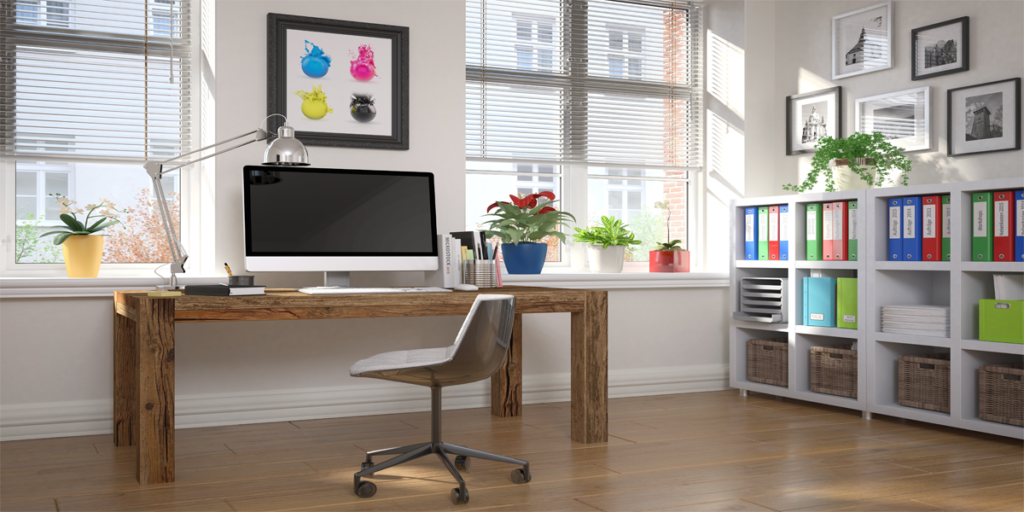A study desk is more than just a place to work; it’s the foundation of a productive and organized workspace. Whether you’re a student, a professional working from home, or someone who enjoys reading or crafting, the right study desk can help you stay focused, comfortable, and organized. When shopping for a desk, it’s essential to find one that combines both style and function to suit your needs and complement your space. Here’s a guide to help you shop for stylish and functional study desks that fit your lifestyle.

1. Consider the Size and Layout of Your Space
Before you start shopping for a study desk, consider the size of your room or workspace. A desk that’s too big can make a small room feel cramped, while a desk that’s too small may not provide enough storage or workspace.
- Small Spaces: If you’re working with limited space, opt for compact study desks that don’t take up too much room. A minimalist design, such as a wall-mounted desk or a foldable desk, can be a great option for tight areas.
- Larger Spaces: For bigger rooms or home offices, consider a larger desk with additional features like drawers or shelves. A corner desk or an L-shaped desk can maximize space and provide ample surface area for multiple tasks.
2. Select the Right Desk Style
The style of your study desk should complement the overall decor of your room. Whether you prefer a modern, rustic, industrial, or traditional look, there are plenty of options to match your taste.
- Modern Desks: Sleek, contemporary designs with clean lines and minimalist features are perfect for modern spaces. Look for desks made from materials like metal, glass, or wood with simple, elegant finishes.
- Rustic or Vintage Desks: If you prefer a warm, cozy vibe, consider a wooden desk with distressed finishes or vintage details. Rustic desks often feature sturdy construction and a timeless appeal that adds character to your room.
- Industrial Desks: If you’re drawn to an industrial aesthetic, opt for desks that combine wood with metal elements. These desks often feature exposed hardware and a raw, edgy design that’s perfect for a modern loft or home office.
3. Choose the Right Material
Study desks come in a wide variety of materials, and the material you choose will impact both the desk’s appearance and durability.
- Wood: Wood desks offer warmth and elegance, making them a versatile choice for various interior styles. Oak, pine, and walnut are popular choices for their durability and timeless look.
- Metal: Metal desks are sleek and modern, offering a durable and sturdy construction. They’re often combined with glass or wood for a stylish, industrial look.
- Glass: Glass desks add a sense of openness and lightness to a space. They’re a great option for smaller rooms because they make the space feel bigger. However, glass desks might require more upkeep to keep clean.
4. Maximize Functionality with Storage Options
A functional study desk should offer storage solutions to keep your workspace tidy and organized. Whether you need space for books, files, or office supplies, look for desks that have built-in storage features.
- Drawers and Cabinets: Desks with drawers can help store pens, notebooks, and personal items. Some desks feature side cabinets, while others have drawers built into the tabletop for a more streamlined look.
- Shelving: If you need extra storage space but don’t have room for a large filing cabinet, consider desks with built-in shelves. Open shelves allow you to keep books, files, or decorative items within easy reach.
- Multi-functional Desks: Consider desks that double as storage units or can easily transform into other types of furniture. For example, desks with hidden compartments or fold-out work surfaces provide additional functionality in tight spaces.
5. Look for Adjustable Features
An adjustable study desk can enhance your comfort and productivity by allowing you to customize your workspace based on your needs. Height-adjustable desks are especially useful if you plan on standing while working or want to switch between sitting and standing throughout the day.
- Standing Desks: If you’re looking for an ergonomic option, consider a height-adjustable or sit-stand desk. These desks can be raised or lowered to your preferred height, allowing you to alternate between sitting and standing positions, which can help reduce strain on your back and neck.
- Ergonomic Features: Look for desks with adjustable keyboard trays, monitor arms, or built-in cable management systems to create a more ergonomic and organized workspace.
6. Think About Comfort and Ergonomics
Your study desk should be as comfortable as it is stylish. Look for desks that promote good posture and ensure that your workspace supports you for long study sessions or work hours.
- Proper Desk Height: When choosing a desk, make sure that the height is suitable for your needs. You should be able to sit comfortably with your feet flat on the ground and your arms at a 90-degree angle while typing.
- Keyboard and Monitor Placement: If you spend a lot of time on a computer, ensure that the desk allows for proper monitor and keyboard placement to minimize strain on your wrists, neck, and eyes.
7. Consider Multi-functional Desks for Small Spaces
If you’re working in a small apartment or bedroom, a multi-functional desk can help you make the most of your limited space. These desks can serve more than one purpose, allowing you to use your space more efficiently.
- Desk with Built-in Shelves: A desk with additional shelving units or cabinets can help you store books, office supplies, or other items, making it an excellent choice for small spaces.
- Convertible Desks: Some desks can transform into dining tables, console tables, or other furniture pieces when not in use. These desks are perfect for studios or small apartments where space is at a premium.
8. Focus on Easy Maintenance
A functional desk should also be easy to maintain. Look for materials and finishes that are durable and easy to clean, especially if you’re working in a high-traffic area or have kids.
- Scratch-Resistant Surfaces: Choose desks with scratch-resistant surfaces or laminate finishes, which are easier to maintain and keep looking new.
- Easy-to-Clean Materials: If you choose a glass desk, make sure it’s easy to wipe down. Wooden desks should be treated with a finish that resists stains and spills.
9. Set the Right Mood with Lighting
Good lighting can dramatically enhance your study experience, so be sure to pair your desk with the right lighting options.
- Desk Lamps: Invest in a quality desk lamp with adjustable brightness to reduce eye strain. A lamp with a dimmer switch or adjustable arms is ideal for customizing the light level based on your needs.
- Ambient Lighting: Consider adding ambient lighting around the desk to create a comfortable, productive atmosphere. A pendant light or wall sconce can add style while providing the right level of illumination.
10. Personalize Your Desk Area
Finally, personalize your study desk to make it feel like your own. Whether you prefer a minimalist approach or love adding decorative touches, your desk should reflect your personality and create an inspiring atmosphere.
- Decorative Items: Add personal touches like plants, inspirational quotes, or artwork to make the space more inviting and motivating.
- Stationery and Organizers: Keep your desk organized with stylish stationery, trays, or desktop organizers. These functional items can help you maintain a clutter-free workspace while adding a touch of personality.

Conclusion
When shopping for a study desk, it’s important to strike a balance between style and functionality. A well-chosen desk can boost your productivity, enhance your comfort, and help you stay organized. Consider the size of your space, the material and design that matches your style, and the storage and ergonomic features that make your workspace more efficient. By following these tips, you can find the perfect study desk that not only meets your practical needs but also creates an inspiring environment for your work or study sessions.


